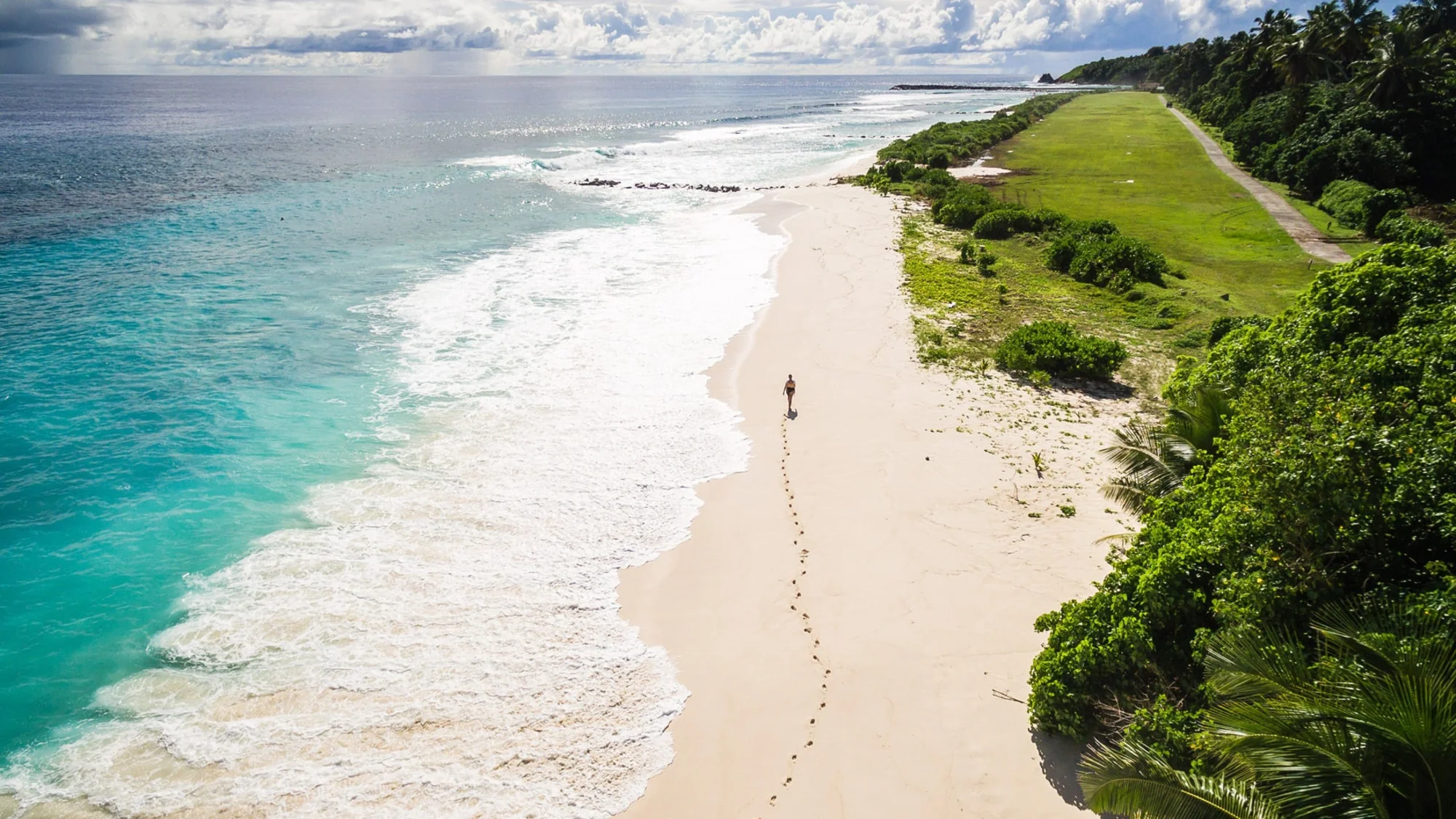
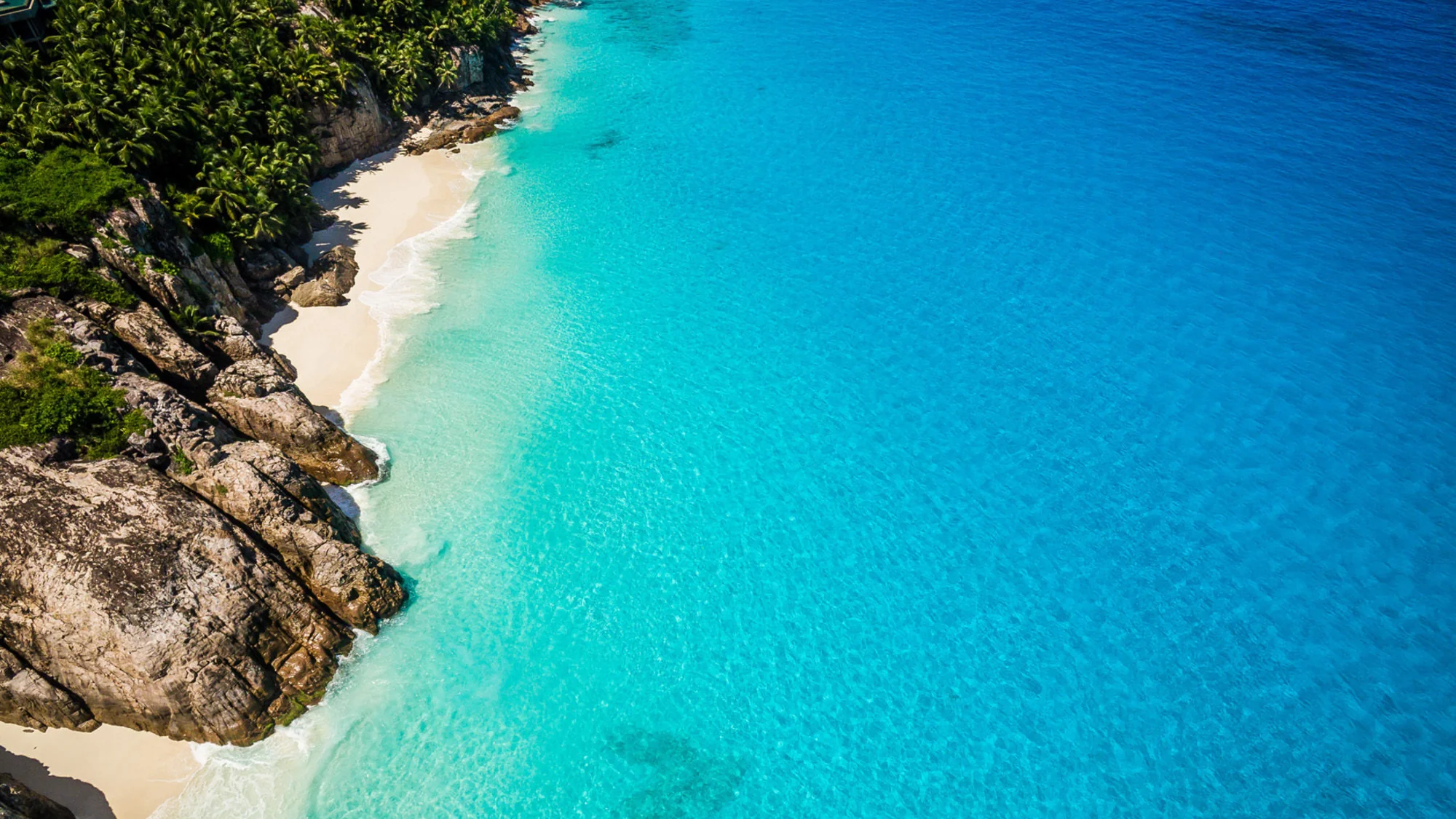
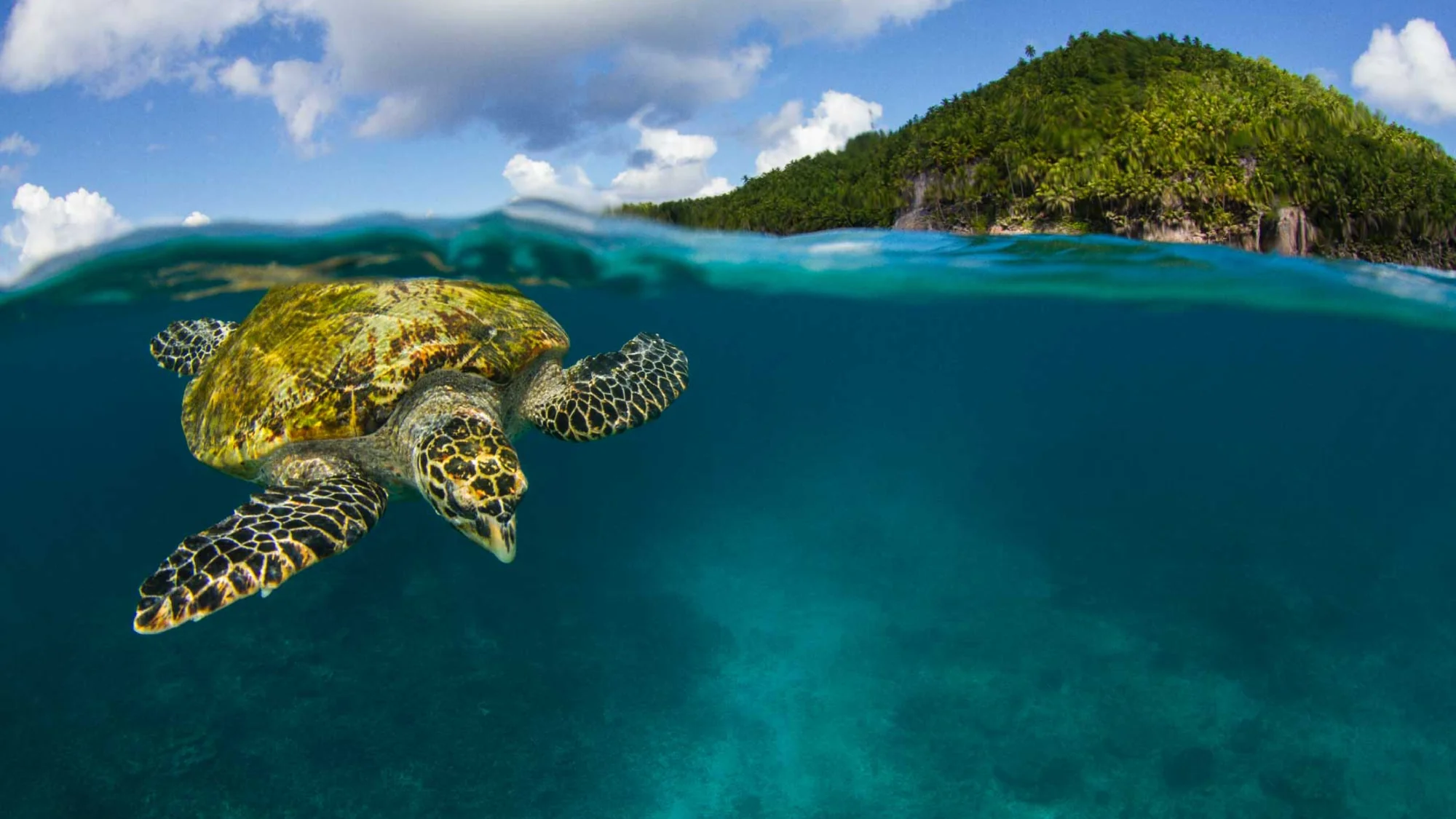
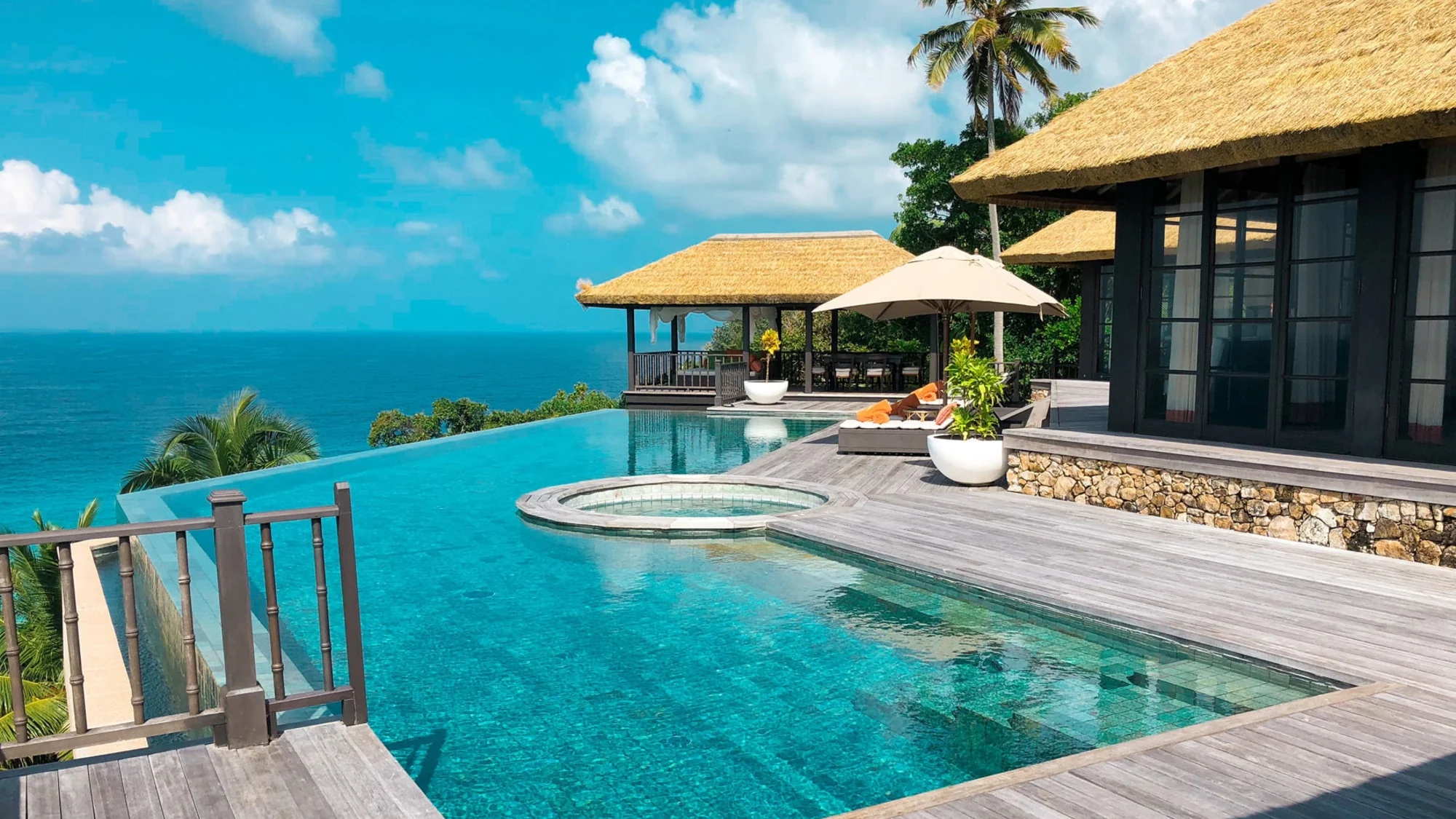
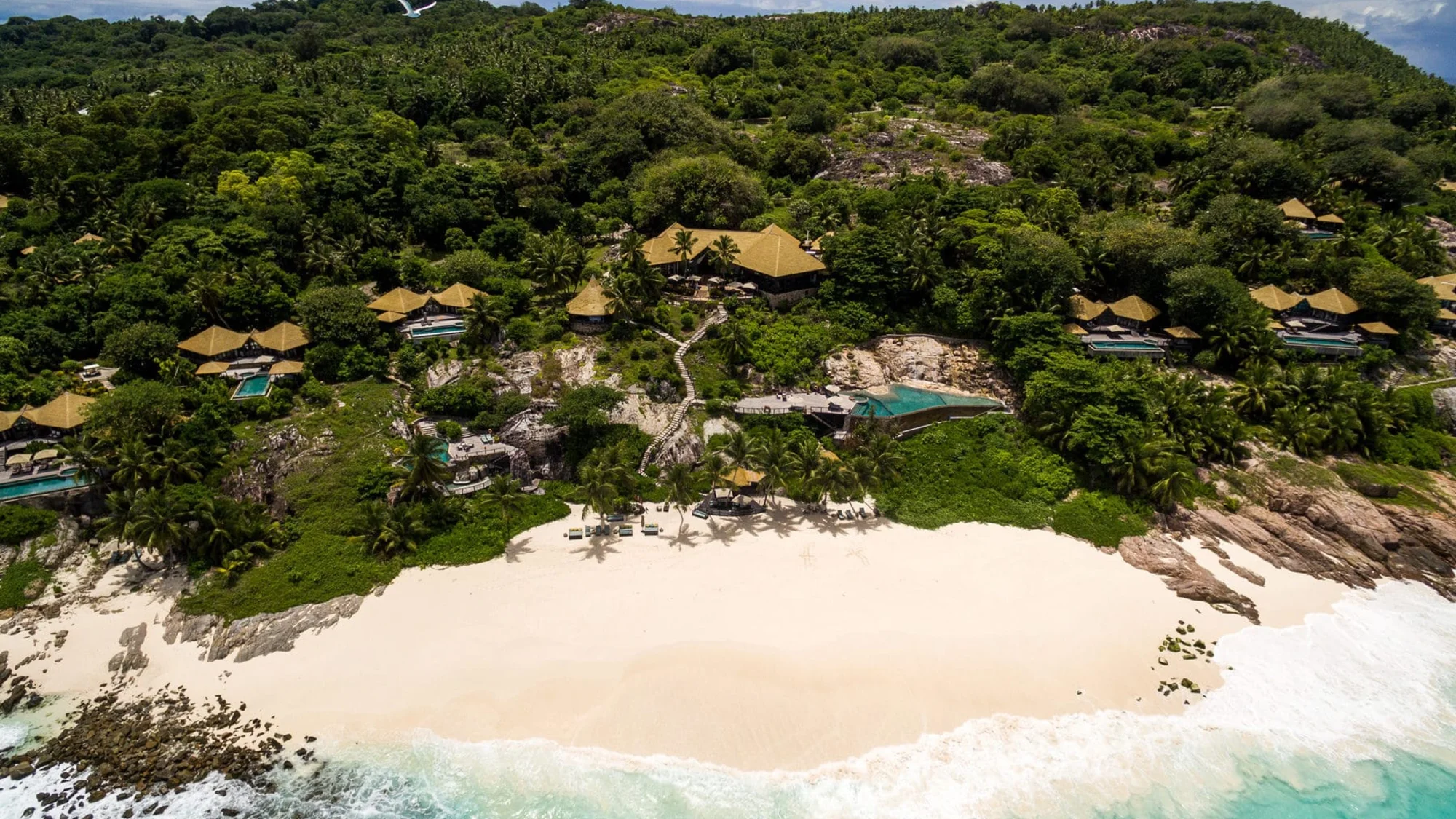
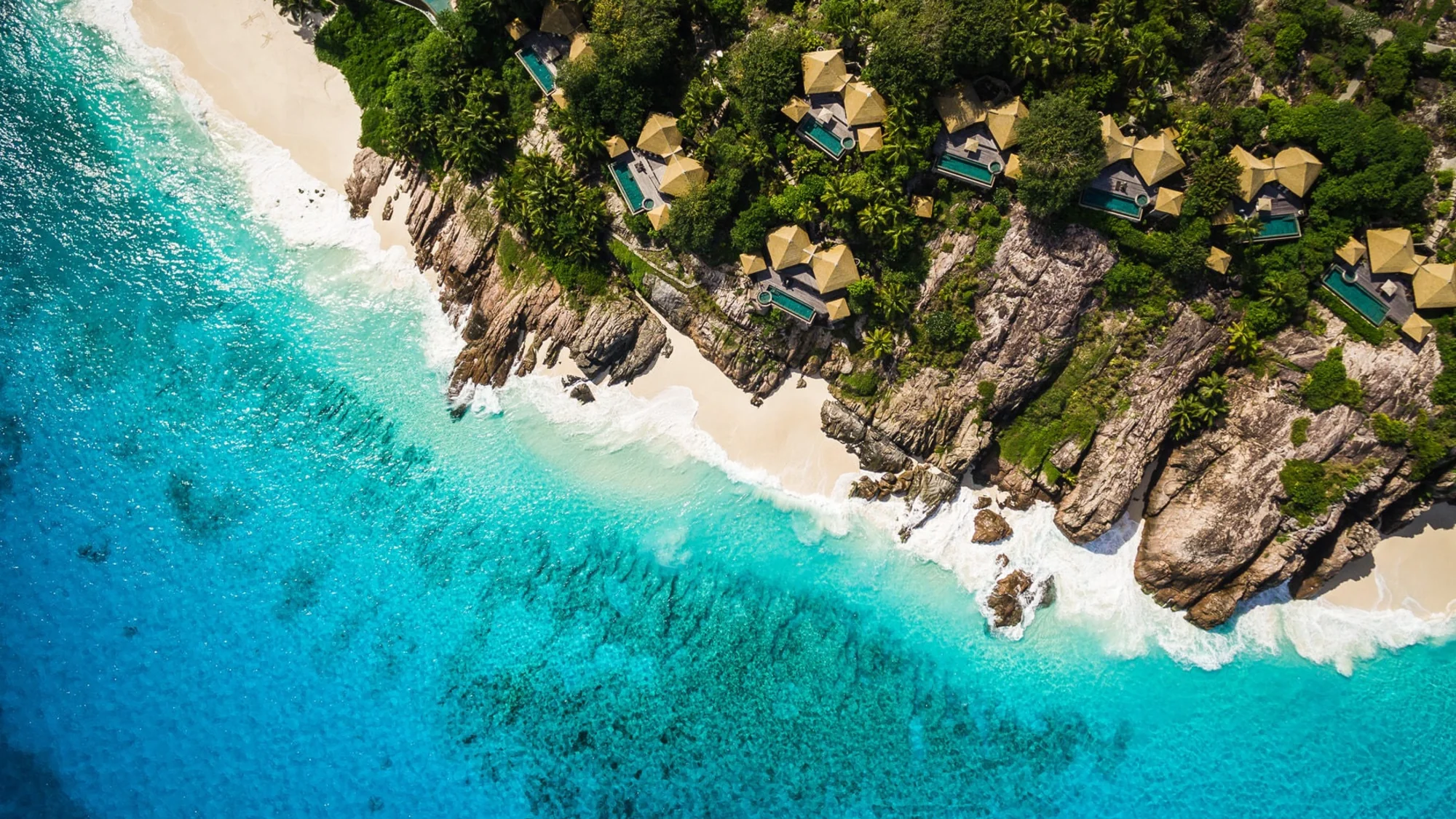
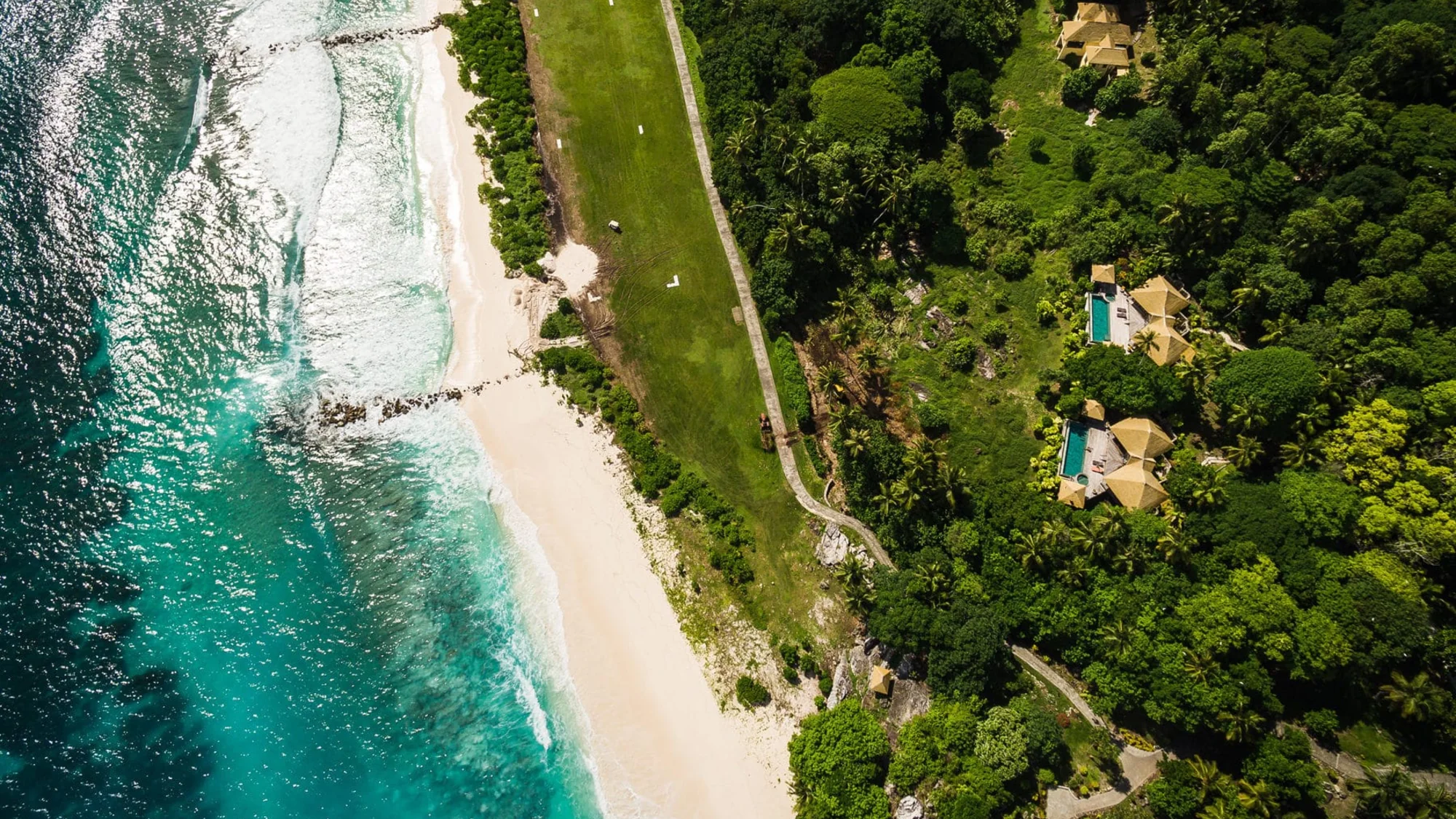
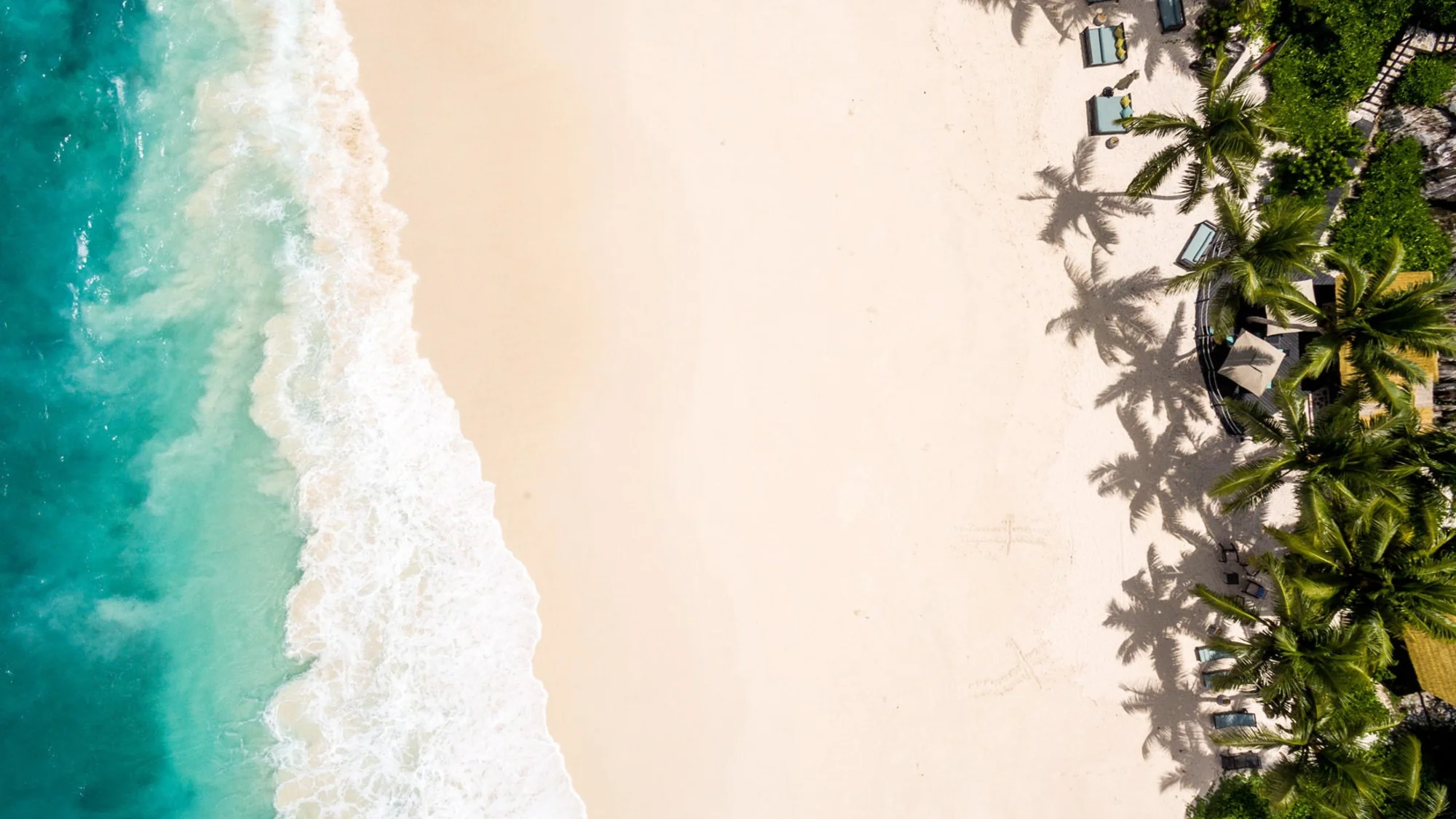
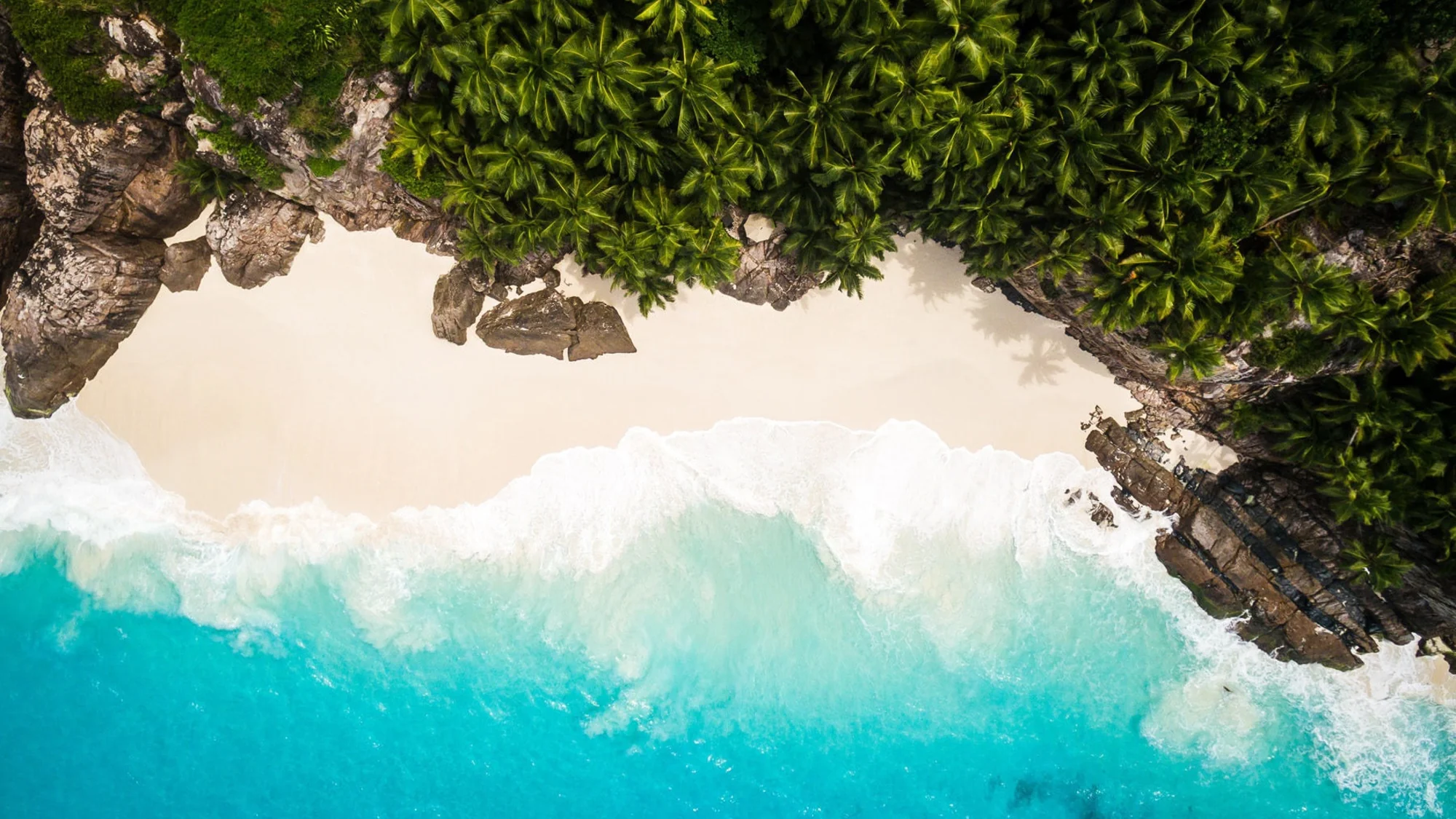
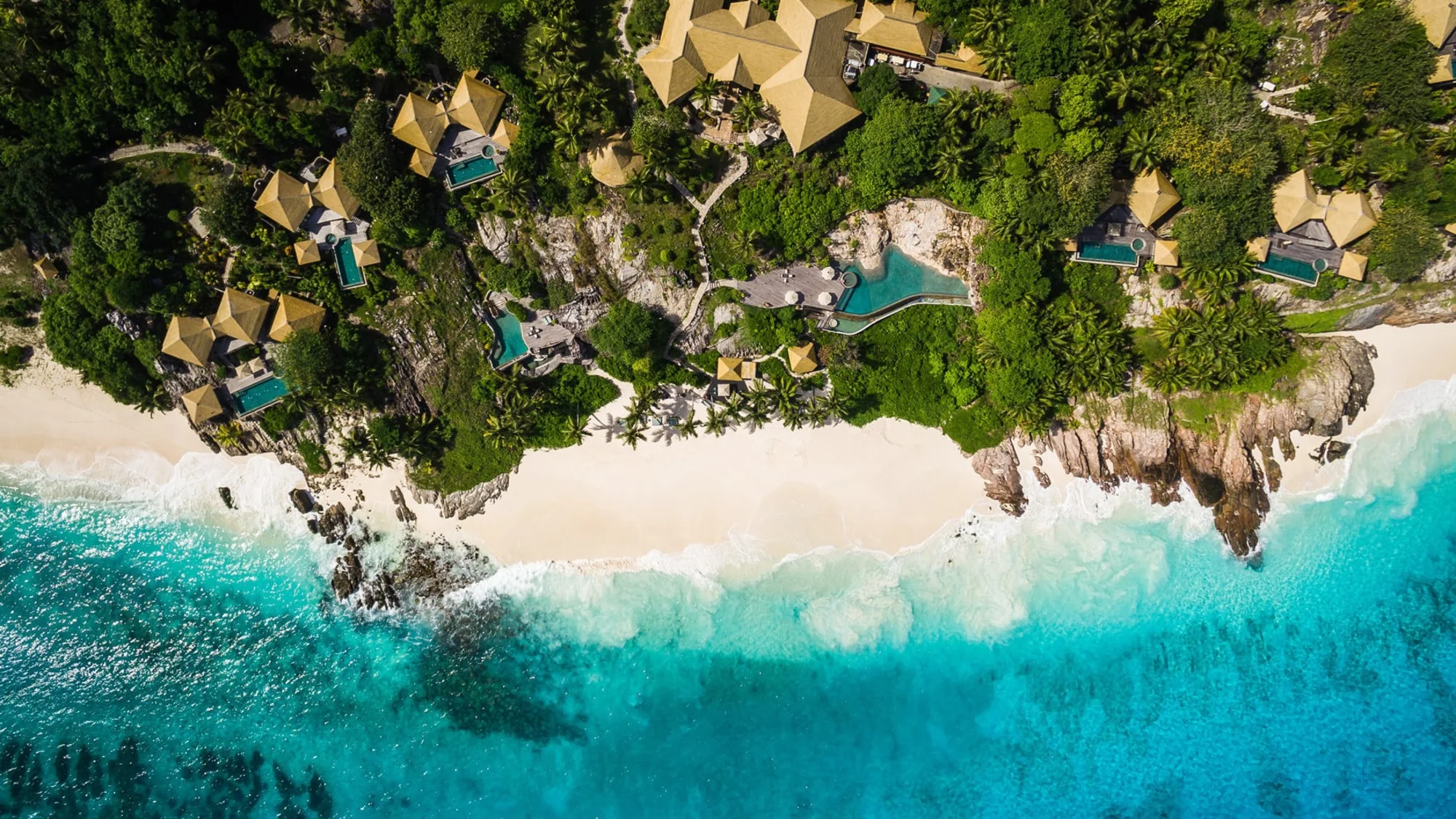
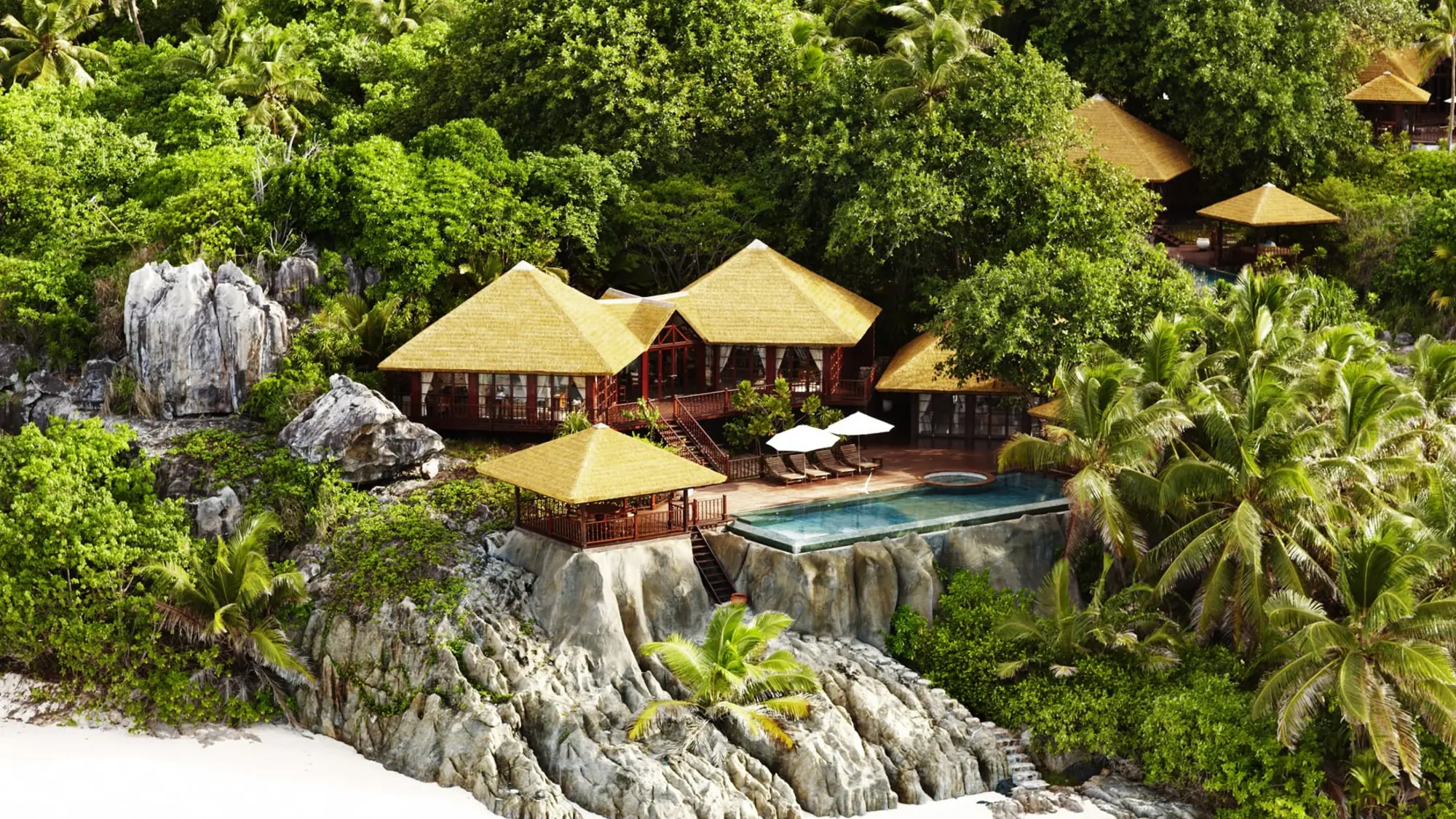
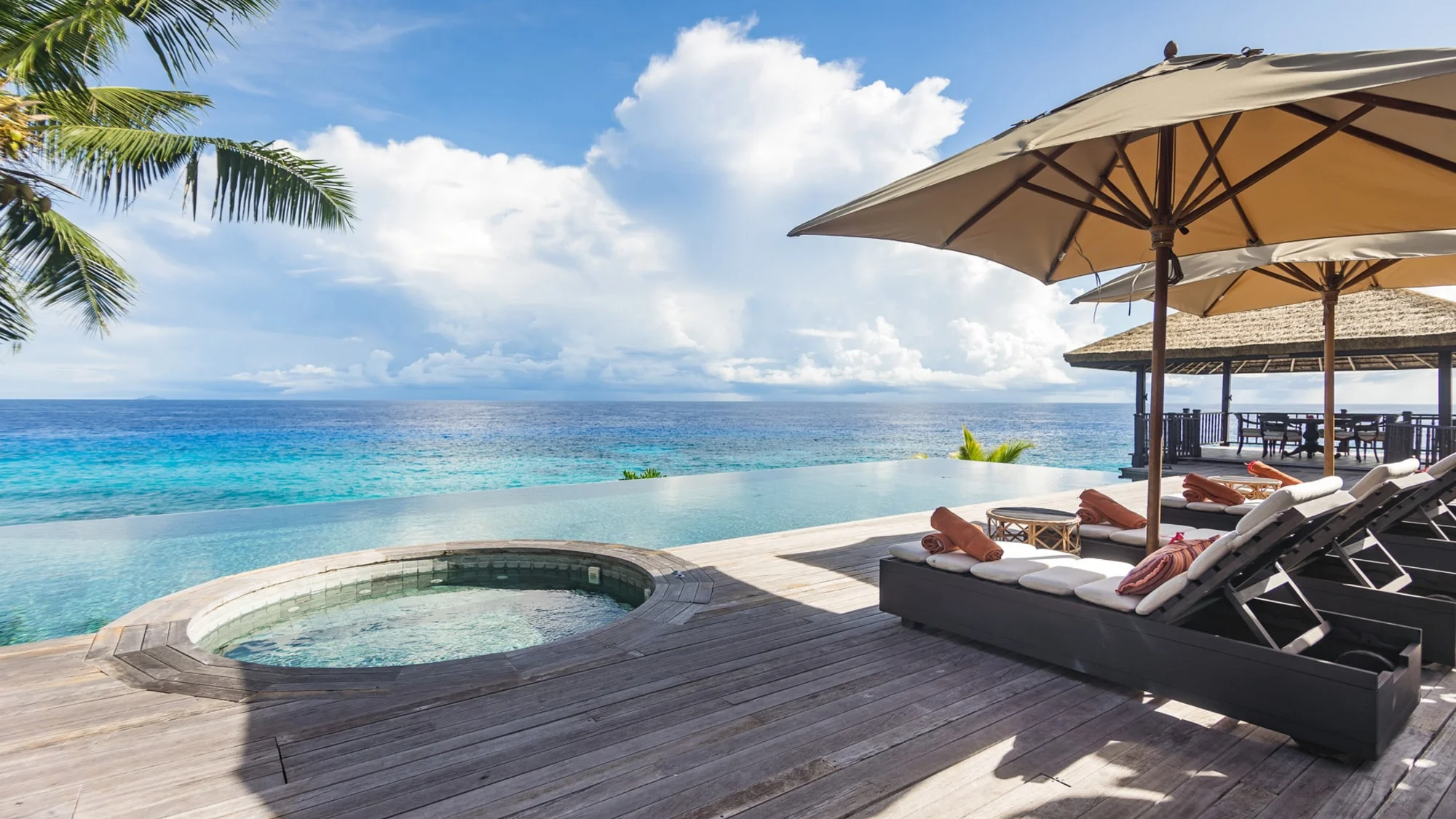
The Island That Asks Something of You: Fregate's Conservation Reciprocity
When Luxury Means Giving Back Rather Than Taking
by KA's Experience Team

April through November
Best months to visit
November through July
Best time to book
April through November
Best months to visit
November through July
Best time to book
Reminder Set!
We'll notify you when it's the best time to book this destination.
Get reminded when it's time to book
Experience Fregate Island Private in the Seychelles—where luxury rewilding transforms you from consumer to steward. Discover conservation-led island life that demands participation, not passive consumption.
We Handle Everything. You Just Show Up.
No research. No coordination. No backup plans needed. Just your perfect journey—guaranteed.
Create Your JourneyWhen Your Phone Feels More Alive Than You Do
You’ve noticed it. The way you reach for your phone before your coffee. The way a dinner table full of people can feel profoundly empty. The way you can spend an entire day “connected” and feel more isolated than ever.1
This isn’t burnout. It’s something deeper.
Sociologists have a term for what we’re living through: a “flight from conversation.”2 We’re not avoiding people—we’re avoiding the messy, unscripted, emotionally complex work of genuine human connection. We’ve traded the risk of real conversation for the controlled, editable, and fundamentally safe simulation of it.3
The result? A world that researchers at MIT call an “anti-empathy machine.”4

The weight of disconnection in a hyperconnected world
You’ve felt this, haven’t you? The way your capacity for patience has thinned. The way other people’s problems feel like interruptions rather than invitations. The way you’ve become a problem-solver rather than a presence.
You didn’t choose this. You were trained for it.
For decades, digital systems have been optimizing you for efficiency. Every notification is a training session in distraction. Every algorithm is teaching you that the most valuable interaction is the fastest one. Every AI chatbot is modeling a world where compassion is a commodity—something to be delivered quickly, with minimal effort, and on demand.5
This isn’t a moral failing. It’s an evolutionary mismatch.6 For two million years, human survival depended on an intricate connection to the living world. That need is hard-wired. And modern life has severed it.
What if the solution isn’t another app, another technique, another optimization?
What if it’s something older, slower, and infinitely more complex?
Where Numbers Track Revival
Fregate Island is not a resort. It’s not a retreat. It’s not a place where you “unplug” and do nothing.
It’s a 30-year-long project in applied ecology—a living system that has been rewilded, restored, and maintained through thousands of small, correct decisions, repeated daily for three decades.7
This is not nature “left alone.” This is nature as technology—biological, data-rich, and unrelenting in its demand for intelligent care.

An ecosystem restored through three decades of intelligent care
The Data Tells the Story
In 1970, there were 16 Seychelles Magpie Robins left in the world. All of them were on Fregate Island. The species was listed as Critically Endangered.8
Today, there are over 200 individuals on Fregate alone, with 54 active territories. The global population has recovered to approximately 500.9
In 1954, there were 31 Aldabra Giant Tortoises on the island—introduced as a conservation measure from the Aldabra Atoll.10
Today, there are over 3,500 free-roaming individuals. This is the world’s largest population of re-wilded giant tortoises.10
In the late 1990s, rats invaded the island and threatened to drive the endemic Fregate Beetle to extinction. A captive breeding program was established at the Zoological Society of London.10
Today, following a successful rat eradication, the beetle population is “thriving again and steadily increasing.”10
This is not a backdrop. This is a functioning system of regeneration.
And you are not here to observe it. You are here to learn how it works—and to discover what it restores in you.
Four Acts of Transformation
Here’s what makes Fregate different from every other “luxury eco-resort” you’ve considered:
It doesn’t let you stay a tourist.
The island operates on a principle called ecological reciprocity.11 This is not transactional. You are not “giving back” by planting a tree and taking a photo. You are being invited into a living system that asks you to think differently about your role.
This happens through a carefully sequenced journey—designed not by hospitality managers, but by those who understand that transformation requires more than good intentions. It requires structure, pacing, and emotional coherence.
Act I: Recalibrating Your Internal Clock
You arrive exhausted. Not physically—existentially. You’ve been living on what the island’s ecologists call “founder’s clock”: the relentless tempo of quarters, exits, and deliverables.12
The first 48 hours are designed to slow your perception of time. This is not metaphorical. Research shows that exposure to natural environments slows down time perception and helps recalibrate our internal clocks, offering a more balanced temporal perspective that contrasts sharply with the stress-inducing tempo of urban life.13
You’ll spend an afternoon with the island’s giant tortoises—A Conversation on Time. These animals can live for over 200 years. They move with deliberation. They do not optimize.
Their presence is not entertainment. It’s a focal point—an embodied anchor for a new, slower, and psychologically healthier cognitive state.14
You begin to feel time expand. Not because there’s “nothing to do,” but because you’re no longer dividing your attention across six screens.
Act II: Learning to See the System
Once your attention is restored, it’s redirected.
You’ll join the island’s head ecologist on a habitat survey. This is not a “tour.” This is embodied learning.15
You’ll walk the system. You’ll observe the subtle signals of a recovering ecosystem: the placement of native seedlings, the monitoring of bird territories, the ongoing research into coral reef health using 3D virtual reef mosaics.16
This is where the intellectual foundation of the island reveals itself. You’re not on vacation. You’re inside the living application of Aldo Leopold’s Land Ethic—the philosophy that humans are not conquerors of the land-community, but “plain members and citizens of it.”17
You’ll learn that resilience is not a final state. It’s a daily process of adaptation, management, and care. The Magpie Robin you saw this morning? Its population is stable, but it carries “some of the lowest recorded levels of genetic diversity among endangered birds.”18 The coral restoration project you’re observing? It’s an experiment—electrified structures versus control structures, testing Mineral Accretion Technology in real time.19
This is the perceptual shift: from “problem” to “process.”
You stop seeing the world as a series of issues to be solved and optimized. You start seeing it as a continuous, intelligent, and necessary dance of care.
Act III: Planting a Node in the Web
On your third day, you’ll plant a single tree.
But first, you’ll learn its role. You’ll understand its place in the island’s food web. You’ll see how this one tree—Terminalia catappa, perhaps, or Calophyllum inophyllum—supports a cascade of life: insects, birds, soil microbes, and the broader canopy structure.20
This is not symbolic. This is embodied cognition—the process by which abstract reasoning and creative thinking emerge from physical interactions with the world.21
You’re not “giving back.” You’re learning to think like an ecosystem.22
And something shifts. The world stops feeling like a stage set where you’re the consumer. It starts feeling like a web where you’re a participant.

Learning to think like an ecosystem
Act IV: The Architecture of Belonging
By your fourth evening, you’re invited to a private dinner beneath the island’s 500-year-old Banyan Tree.23
This is not a meal. This is an architectural experience of belonging.
The tree’s aerial roots form a cathedral. The ecologist who joins you describes it as a “superorganism”—a single tree that functions as a forest, hosting dozens of species, stabilizing the soil, and storing carbon for centuries.24
You realize: This is the opposite of efficiency. This is resilience.
Efficiency optimizes for speed. Resilience optimizes for survival. Efficiency asks, “How fast can I solve this?” Resilience asks, “How long can I sustain this?”
You’ve spent your entire career optimizing. And sitting beneath this tree, you feel the weight of that choice.
What Rewires When You Return
Here’s what the research shows about what happens after immersive nature experiences like this:
Your directed attention—the cognitive resource depleted by constant digital demands—is restored through what psychologists call “soft fascination”: the effortless engagement with birdsong, the texture of bark, the movement of a tortoise.25
Your sense of time recalibrates. Urban life creates a “pervasive sense of time scarcity.” Nature immersion expands it.26
Your empathic capacity rebuilds. Empathy requires two components: cognitive empathy (perspective-taking) and affective empathy (emotional concern). Both are eroded by digitally mediated communication, which strips away the nonverbal cues that signal genuine attunement.4 Fregate restores both by immersing you in a system where care is visible, tangible, and unrelenting.

Time recalibrated, attention restored, empathy renewed
You return with a new filter.
Not the Instagram kind. The perceptual kind.
You start noticing systems instead of problems. You start valuing processes over solutions. You stop asking, “How do I optimize this?” and start asking, “How do I sustain this?”
Your relationships shift. Your work shifts. Your sense of what matters shifts.
This is not a vacation. This is a recalibration of your operating system.
Where Luxury Funds Legacy
Fregate Island is one of the clearest examples of a paradigm shift happening in luxury travel: the move from sustainable to regenerative.27
Sustainable tourism aims to minimize harm. Regenerative travel aims to leave a place better than you found it.28
The Fregate model works because of two principles:
- Restoration: The 30-year project to restore the island’s indigenous forest and rewild its species.29
- Reciprocity: A model where guest revenue directly funds the (expensive) work of habitat restoration, biosecurity, and scientific research.30
Only 16 villas exist on this 2.07-square-kilometer island.31 The high revenue from a small number of guests ensures the island can afford the luxury of caring—slowly, intelligently, and with world-class expertise.

Where luxury means contributing to systems that outlive us
This is “conservation as seamless service.”32 You don’t see the labor. But you feel the result: an island where luxury is not about consumption, but about contributing to something that will outlive you.
The Threshold Question
Fregate Island doesn’t need anything from you. But it invites you into it.
It asks you to slow down. To pay attention. To care about something that existed long before you and will continue long after you.
It asks you to trade the “digital efficiency” that has optimized your empathy away for the “analog upgrade” of a living system that restores it.33
This is not for everyone.
If you’re looking for a place to “unplug and relax,” there are easier options. If you’re looking for a luxury experience that doesn’t challenge you, there are more comfortable ones.
But if you’ve felt the weight of living in a world designed for efficiency rather than connection…
If you’ve noticed your capacity for empathy eroding and wondered if it’s possible to get it back…
If you’re ready to stop optimizing and start sustaining…
Then this island has been waiting for you for 30 years.
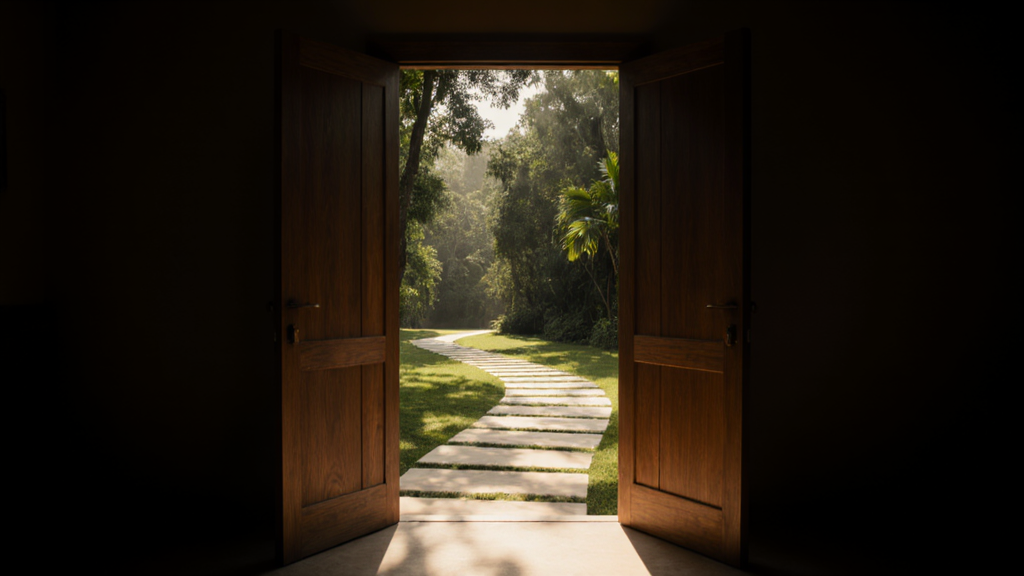
The island has been waiting for thirty years
Journey as Architecture
The experience described here is not something you can book with a form. It requires conversation, curation, and a deep understanding of what you need—not just what you want.
This is the work of journey design: taking the raw complexity of a place like Fregate and sequencing it into an emotionally coherent experience that allows transformation to occur.
It requires knowing when to introduce the head ecologist. When to schedule the tortoise encounter. When to create space for silence. When to plant the tree.
This is not logistics. This is architecture.

Where practice becomes second nature
For travelers who know that the rarest luxury is time that feels unhurried, and that the best trips aren’t about seeing everything, but feeling something—this journey can be made-to-measure.
If you’re ready to explore what Fregate might restore in you, the conversation begins with understanding what you’re seeking to reclaim.
We Handle Everything. You Just Show Up.
No research. No coordination. No backup plans needed. Just your perfect journey—guaranteed.
Create Your JourneyFootnotes
-
The Compassion Illusion: Can Artificial Empathy Ever Be Emotionally Authentic? - Frontiers, https://www.frontiersin.org/journals/psychology/articles/10.3389/fpsyg.2025.1723149/abstract ↩
-
Is technology killing empathy? With Sherry Turkle, PhD, https://www.apa.org/news/podcasts/speaking-of-psychology/anti-empathy-machine ↩
-
Alone Together Book Summary and Review | Sherry Turkle - StoryShots, https://www.getstoryshots.com/books/alone-together-summary/ ↩
-
Is technology killing empathy? With Sherry Turkle, PhD Source ↩ ↩2
-
The Compassion Illusion: Can Artificial Empathy Ever Be Emotionally Authentic? - Frontiers Source ↩
-
ELEONORA GULLONE - THE BIOPHILIA HYPOTHESIS AND LIFE IN THE 21st CENTURY - EarthWise Education, https://earthwise.education/wp-content/uploads/2019/10/Gullone2000_Article_TheBiophiliaHypothesisAndLifeI.pdf ↩
-
Ecological restoration of islands in the Seychelles - Conservation Evidence Journal, https://conservationevidencejournal.com/reference/pdf/2199 ↩
-
Seychelles Magpie Robin, https://natureseychelles.org/seychelles-wildlife/endemic-bird-species/seychelles-magpie-robin/ ↩
-
Seychelles Magpie Robin: 2025 Census Insights - Fregate Island, https://www.fregate.com/seychelles-magpie-robin-2025-census-insights/ ↩
-
Our Projects | Fregate Island Foundation, https://fregateislandfoundation.org/home/projects/ ↩ ↩2 ↩3 ↩4
-
What is Regenerative Travel? | Journeys With Purpose, https://journeyswithpurpose.org/what-is-regenerative-travel/ ↩
-
Being in nature changes our overall perception of time - Earth.com, https://www.earth.com/news/nature-experiences-alter-time-perception/ ↩
-
(PDF) Time grows on trees: The effect of nature settings on time perception - ResearchGate, https://www.researchgate.net/publication/319638826_Time_grows_on_trees_The_effect_of_nature_settings_on_time_perception ↩
-
Embodied cognition - Wikipedia, https://en.wikipedia.org/wiki/Embodied_cognition ↩
-
Research - University Of Seychelles, https://unisey.ac.sc/beri/research/ ↩
-
The Land Ethic - rintintin.colorado.edu, https://rintintin.colorado.edu/~vancecd/phil308/Leopold.pdf ↩
-
When birds of a feather flock together: Severe genomic erosion and the implications for genetic rescue in an endangered island passerine - PubMed, https://pubmed.ncbi.nlm.nih.gov/38948538/ ↩
-
Conservation around Fregate Island | Blancpain Ocean Commitment, https://www.blancpain-ocean-commitment.com/en/expeditions/conservation-around-fregate-island ↩
-
Ecological restoration of islands in the Seychelles - Conservation Evidence Journal Source ↩
-
Embodied Learning Through Immersive Virtual Reality: Theoretical Perspectives for Art and Design Education - PMC Source ↩
-
Fregate Island: Home, https://www.fregate.com/ ↩
-
Ecological restoration of islands in the Seychelles - Conservation Evidence Journal Source ↩
-
What is Kaplan’s Attention Restoration Theory (ART)? - Positive Psychology Source ↩
-
Being in nature changes our overall perception of time - Earth.com Source ↩
-
Experienced Presence within Computer-Mediated Communications: Initial Explorations on the Effects of Gender with Respect to Empathy and Immersion - Oxford Academic, https://academic.oup.com/jcmc/article/10/2/JCMC1023/4614459 ↩
-
What is Regenerative Travel? | Journeys With Purpose Source ↩
-
Ecological restoration of islands in the Seychelles - Conservation Evidence Journal Source ↩
-
A New Model for Conservation-First Luxury Tourism — Wildscapes, https://www.wildscapestravel.com/blog/conservation-first-luxury-tourism ↩
-
Frégate Island - Wikipedia, https://en.wikipedia.org/wiki/Fr%C3%A9gate_Island ↩
-
A New Model for Conservation-First Luxury Tourism — Wildscapes Source ↩
-
(PDF) Towards a Sociology of Information Technology - ResearchGate Source ↩
-
The Empathy Deficit: How Digital Communication Erodes Human Connection - Harvard Business Review, https://hbr.org/2019/03/the-empathy-deficit ↩
